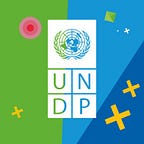Tapping into Somali talent — an innovation challenge to tackle the country’s water issues
UNDP’s Accelerator Lab is launching a new innovation challenge for Somali people to come up with innovative and feasible solutions for problems related to water scarcity in Somalia.
The water challenge invites low-tech and ‘no-tech’ solutions to the most pressing water-related issues facing urban and rural communities in Somalia.
These issues include the need to address the increasing demand for water from the country’s growing urban population, the need for households to reduce their use of water, and the challenges of water recycling and desalination.
The key aim of the challenge, implemented by UNDP Accelerator Lab, the Resilience and Climate Change team and Somali government partners, is to develop hands-on viable solutions to address water scarcity and empower people to become agents of change in their communities by creating solutions and opportunities to solve water scarcity.
Why water?
Water is critical for sustainable socio-economic development and human survival, but recent decades have seen increasing pressure on water resources worldwide, including from climate change and the rapid growth of urban populations.
In Somalia, water is not only scarce but a matter of life and death. The country has suffered from water-related crises for some thirty years, with two devastating droughts hitting the country in the past decade alone.
The first of these droughts occurred in 2010–2011, causing a famine in which over one million people lost their lives and even more became internally displaced. The second drought struck in 2016–2017, leading to more tragic loss of human life and the death of over 80% of livestock, leaving the pastoral community destitute and internally displaced.
The water challenge is part of UNDP’s commitment to seeking out new and innovative solutions to these challenges that can be easily implemented on the ground.
What we’re looking for
The solutions we are looking for from young people, whether as private initiatives or ideas from social enterprises, could take the form of low-tech or non-tech products or services that are financially and operationally sustainable.
Water solutions for rural areas and pastoral farming:
What low-tech or no-tech solutions could be applied to counter the problem of water scarcity in rural areas — including solutions for pastoral farmers?
Urban water solutions:
How can we meet the growing need for water in urban areas? Could decentralized water solutions be used to support the rapid expansion of the population in urban areas in Somalia? How can we meet the demands of the growing IDP population around urban areas?
Behavioural solutions:
What resilience strategies and behaviours could be applied to help people adapt to water scarcity?
Water recycling and purification solutions:
How can we desalinate water in an economical way to move ‘from sea to sink’? How can we make good use of recycled ‘greywater’ (i.e. cleaner wastewater from showers and washing up, etc.)?
Solutions for recharging aquifers:
How can we replenish our groundwater resources?
How will the water challenge work?
Step 1: Citizens and companies are invited to submit ideas online. A panel will select the 20 best ideas. The chosen candidates will then pitch their solutions and the 10 best ideas will be selected for development.
Step 2: The successful candidates will attend an intensive ‘design evaluation bootcamp’ to help them further improve their solutions. The bootcamp will include sessions on design thinking and prototyping, as well as sessions to help candidates evaluate the feasibility of their solutions.
Step 3: The candidates will be given an opportunity to apply what they have learned and to develop their solutions.
Step 4: The teams will pitch their finalised ideas to a panel.
Step 5: The three most feasible solutions will be awarded seed funding and an opportunity to experiment and launch pilots within areas of great need within Somalia.
Anyone with a good idea and a passion for finding solutions to Somalia’s water challenges is eligible to apply here by 30 June 2021.
